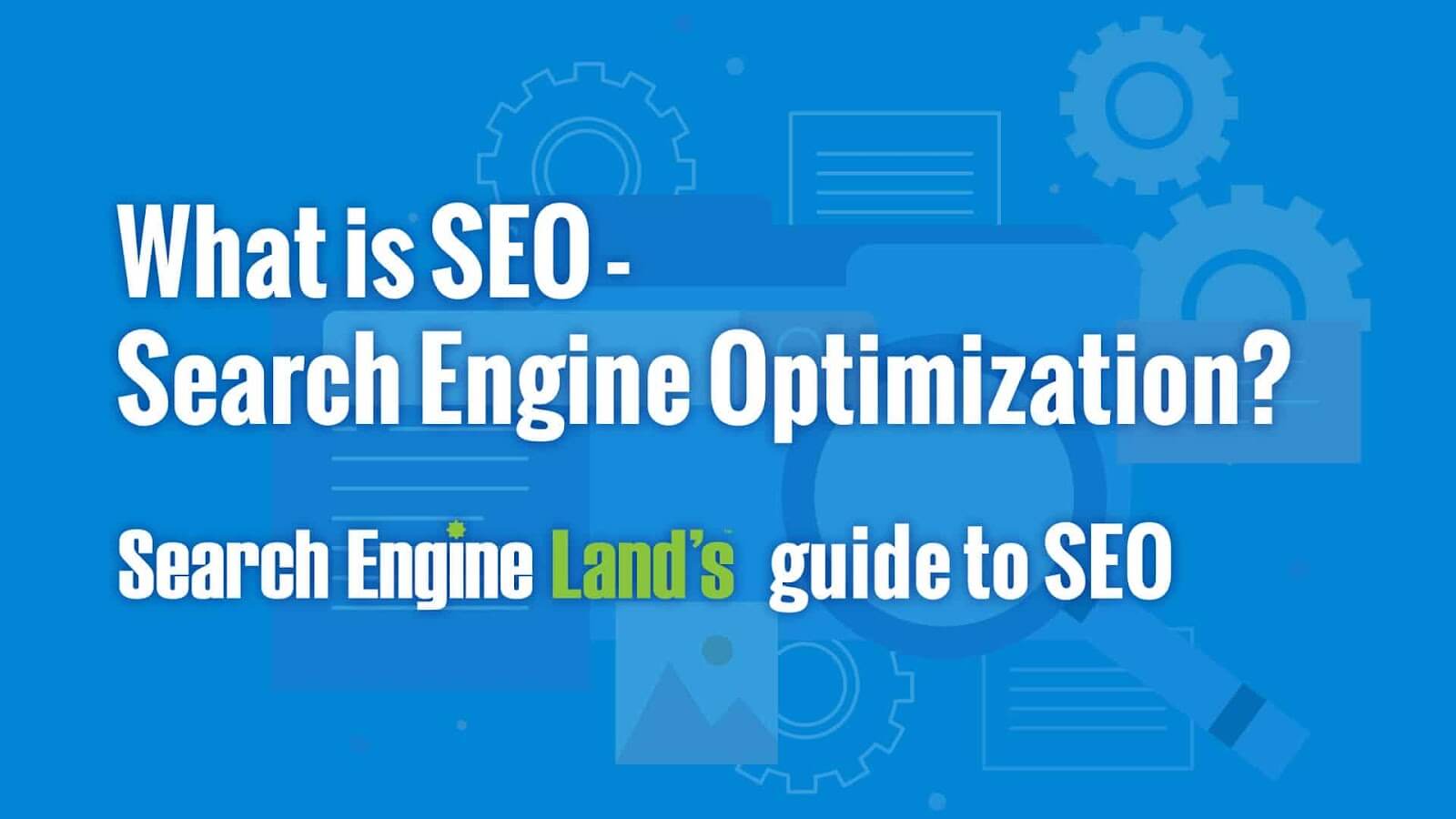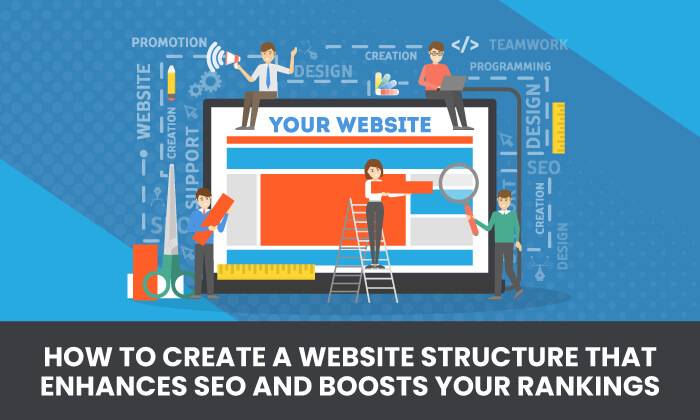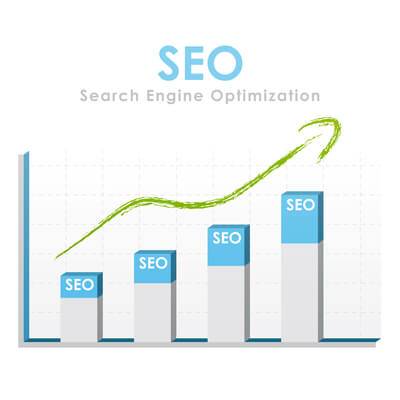As more businesses shift to online platforms, competition for online visibility and sales has become more intense. One strategy to enhance your online presence is through Search Engine Optimization (SEO). SEO is a practice that helps businesses rank high in search engine results pages (SERPs) by improving the quality and relevance of their website content.
Optimizing your website for specific keywords can attract more traffic and visibility, which can translate into increased sales. In this article, we will provide some helpful tips on how a business can use SEO to boost sales in the English language.

What is Search Engine Optimization (SEO)?
Search Engine Optimization (SEO) is the process of optimizing your website to improve its visibility and ranking in search engine results in pages. This helps potential customers find your website more easily, leading to increased traffic and, ultimately, more sales. SEO involves a variety of techniques, including keyword research, website content optimization, and link building. By understanding how search engines work and what they look for in a website, businesses can improve their website’s performance and attract more visitors.
In summary, mastering SEO is an essential part of any digital marketing strategy and can significantly impact your business’s success.

The Importance of SEO in Digital Marketing
The world has gone digital, and businesses of all kinds have recognized the crucial role of digital marketing in their success. Among the many techniques employed, Search Engine Optimization (SEO) holds a special place of importance. SEO is the key to increasing your website’s visibility, driving organic traffic to your site, and generating leads that can convert into sales.
The previous section, it highlights how one can evaluate the SEO of their website, optimize its content and structure for SEO, and build an effective link-building strategy. SEO is also necessary to track your website’s performance and make incremental changes to improve its ranking. Above all, the essential role of SEO in driving traffic to your website cannot be emphasized enough, as it is a critical determinant of your online visibility and overall success. Optimizing your website content and structure for SEO and applying the right SEO tactics can significantly boost your sales and increase your revenue.
So, whether you are new to digital marketing or an established player, optimizing your website for SEO is a must-do to stay ahead of the competition.

How to Evaluate the SEO of Your Website
When it comes to increasing website traffic, search engine optimization (SEO) is an essential tool for any business. But how do you evaluate the success of your SEO efforts? In section 3 of our blog, we explore the various methods for evaluating the SEO of your website. From analyzing your website’s content and structure to tracking your performance with software, there are several ways to ensure that your SEO is working as efficiently as possible.
By making incremental modifications and improvements, such as optimizing your website for keywords and building backlinks, you can drive more traffic to your site and ultimately increase sales. Whether you’re just starting out with SEO or looking to improve your existing strategies, it’s important to evaluate your efforts on a regular basis to ensure maximum impact. With the right tools and techniques, you’ll be well on your way to boosting your website’s visibility and driving more sales through SEO.

Optimizing Your Website Content for SEO
Optimizing website content is crucial for successful SEO. This section will emphasize the importance of effective website content in boosting search engine rankings. The website’s content should be well-researched, well-structured, and engaging to attract visitors, increase page views, and ultimately sales. Using relevant keywords throughout the page’s content is necessary without compromising clarity and readability. Quality content that answers the user’s search queries and satisfies their needs will enhance user experience and improve dwell time on the website. Proper use of H1, H2 tags and meta descriptions in the website content will help search engines understand the website’s structure and hence the importance of each page.
Remember that high-quality content is shareable, and users are more likely to share and link to content that they find valuable. In summary, optimizing your website content for SEO is not just for ranking higher on Google but also for providing a premium user experience and improving sales.

Optimizing Your Website Structure and Usability for SEO
Optimizing the structure and usability of your website is crucial for SEO success. Ensuring that your website is easy to navigate and mobile-friendly can improve your search engine rankings and enhance your users’ experience. Using clear headings, short paragraphs and optimizing for mobile devices can significantly reduce your website’s bounce rate, which is crucial for SEO.
Additionally, it is crucial to ensure that all of your website’s content is accessible and easy to read, as this can significantly impact your search engine rankings. Optimizing your website’s structure and usability can help you improve your SEO rankings and drive more traffic to your website, ultimately leading to increased sales and revenue.
Link Building Strategies to Improve SEO
Link building is an essential and integral part of SEO. The previous sections have highlighted the importance of SEO in driving traffic and boosting sales for businesses. However, without proper link-building strategies, your SEO efforts may fall short. By earning links from authoritative sites, building your brand, and nurturing an audience who will help amplify your content, you can improve your website’s search engine ranking and visibility.
Some effective link-building strategies include replicating your competitors’ SEO backlinks, acquiring links from crowdfunding sites, and seeking EDU backlinks. By implementing these strategies, you increase the chances of ranking higher in search results and driving more traffic to your website.

Performance Tracking Software for SEO Analysis
To effectively measure the success of your SEO efforts, it’s essential to use performance tracking software. These tools provide in-depth insights into your website’s performance and help identify areas that need improvement. With tools like Ahrefs, Serpstat, and SE Ranking, businesses can track their organic ranks, monitor local listings, and identify keyword opportunities.
Additionally, Google Analytics allows you to analyze your site’s and visitors’ data, including pageviews and session duration. By using these performance tracking tools, businesses can optimize their SEO strategies and drive more traffic to their website, ultimately leading to increased sales. It’s important to continuously monitor and track your website’s performance and make incremental improvements to your SEO strategies to stay ahead of the competition.
Incremental Modifications and Improvements for SEO
In order to achieve success with SEO, it is important to make ongoing incremental modifications and improvements to your website. These changes should be made with the end goal of improving your website’s visibility on search engines. This could include editing content to include more relevant keywords, fixing broken links, improving website speed and usability, and regularly updating website content to keep it fresh and relevant.
By making these incremental improvements over time, you can ensure that your website remains as optimized as possible for search engines, helping to boost your overall online presence and drive more traffic to your site.
With the right approach and a dedication to ongoing improvement, any business can see significant benefits from incorporating SEO best practices into their digital marketing strategy.

The Role of SEO in Driving Traffic to Your Website
In the world of digital marketing, the importance of search engine optimization cannot be overstated. SEO plays a crucial role in driving traffic to your website, increasing your visibility on search results pages and ultimately, boosting your sales. However, before you can begin optimizing your website for SEO, it is important to evaluate its current state. Once you have an understanding of its strengths and weaknesses, you can begin implementing practices that will improve your website’s ranking and drive more traffic to your pages.
By focusing on key areas such as website content, structure, and link-building strategies, you can create a comprehensive SEO strategy that will help increase your website’s visibility and drive more sales. With ongoing incremental improvements and the help of performance tracking software, you can continually refine your SEO strategy to ensure that you are staying ahead of the competition and driving results for your business.
So, SEO plays a crucial and significant role in driving traffic to your website and boosting your sales.

Tips for Boosting Sales through SEO
In order to boost sales through SEO, it is essential to understand the importance of keyword strategy and trustworthy content. By being keyword clever, businesses can ensure their website appears at the top of search engine results, increasing visibility and driving traffic.
Additionally, creating high-quality, trustworthy content that earns the trust of both customers and search engines is crucial for success. Planning out site structure and focusing on long-tail keywords for maximum impact is also important. Link-building strategies and performance tracking software can aid in SEO analysis and drive incremental improvements over time. A strong SEO strategy can ultimately increase conversion rates and drive sales, making it a valuable aspect of any digital marketing plan.

Conclusion
In conclusion, it is evident that search engine optimization plays a critical role in driving traffic to a website, improving user experience, and ultimately boosting sales. By implementing the tips outlined in this blog, including evaluating your website’s SEO, optimizing your content and structure, and utilizing link-building strategies, you can improve your website’s visibility and performance in search engine results in pages.
Additionally, investing in performance tracking software and making incremental improvements to your website’s SEO can provide valuable insights and continued growth. By prioritizing SEO, businesses can increase their online presence and attract more potential customers, leading to increased sales and success. As such, it is essential for businesses to embrace SEO as a fundamental aspect of their digital marketing strategy.
Frequently Asked Questions – Using Search Engine Optimization (SEO) to Boost Sales
How does SEO help sales?
SEO can help sales by improving a website’s visibility and ranking in search engine results pages (SERPs), which can lead to more organic traffic and potential customers. By targeting high-volume and relevant keywords and phrases, businesses can attract more qualified leads and increase the chances of conversion and sales.
How can SEO services boost your sales and revenue targets?
SEO services can boost your sales and revenue targets by optimizing your website and content for better search engine ranking and user experience. By implementing effective on-page and off-page SEO strategies, businesses can attract more traffic, generate more leads, and increase their conversion rates. Additionally, by tracking and analyzing website performance metrics, SEO experts can identify areas for improvement and optimize for maximum ROI.
Can SEO increase my sales and leads?
Yes, SEO can increase your sales and leads by improving your website’s visibility and ranking in search engine results pages (SERPs), which can attract more organic traffic and potential customers. By targeting high-volume and relevant keywords and phrases, businesses can attract more qualified leads and increase the chances of conversion and sales.
What are some tips for Search Engine Optimization?
Some tips for Search Engine Optimization include conducting effective keyword research, optimizing on-page elements such as title tags, header tags, and meta descriptions, creating high-quality and engaging content, building quality backlinks, and staying up-to-date with the latest SEO trends and best practices.
How can SEO improve your business?
SEO can improve your business by increasing your online visibility and authority, attracting more qualified traffic and leads, improving user experience and engagement, and ultimately increasing conversion rates and sales. By implementing effective SEO strategies, businesses can stay ahead of their competitors and reach their target audience more effectively.
How did SEO services improve your online business?
SEO services can improve online business by optimizing website content and structure, building quality backlinks, and analyzing website performance metrics to identify areas for improvement. By implementing effective SEO strategies, businesses can improve their online visibility and ranking in search engine results pages (SERPs), attract more traffic and leads, and ultimately increase conversion rates and sales.
What is SEO and how is it important to business?
SEO stands for Search Engine Optimization and it is the process of optimizing website content and structure to improve its visibility and ranking in search engine results pages (SERPs). SEO is important to business because it can help increase online visibility, attract more qualified leads and customers, improve user experience and engagement, and ultimately increase conversion rates and sales.
How does SEO benefit small business?
SEO can benefit small business by leveling the playing field with larger competitors and increasing their online visibility and authority. By implementing effective SEO strategies, small businesses can attract more qualified traffic and leads, improve user experience and engagement, and ultimately increase conversion rates and sales.
What is SEO and how can it improve online success?
SEO stands for Search Engine Optimization and it is the process of optimizing website content and structure to improve its visibility and ranking in search engine results pages (SERPs).



